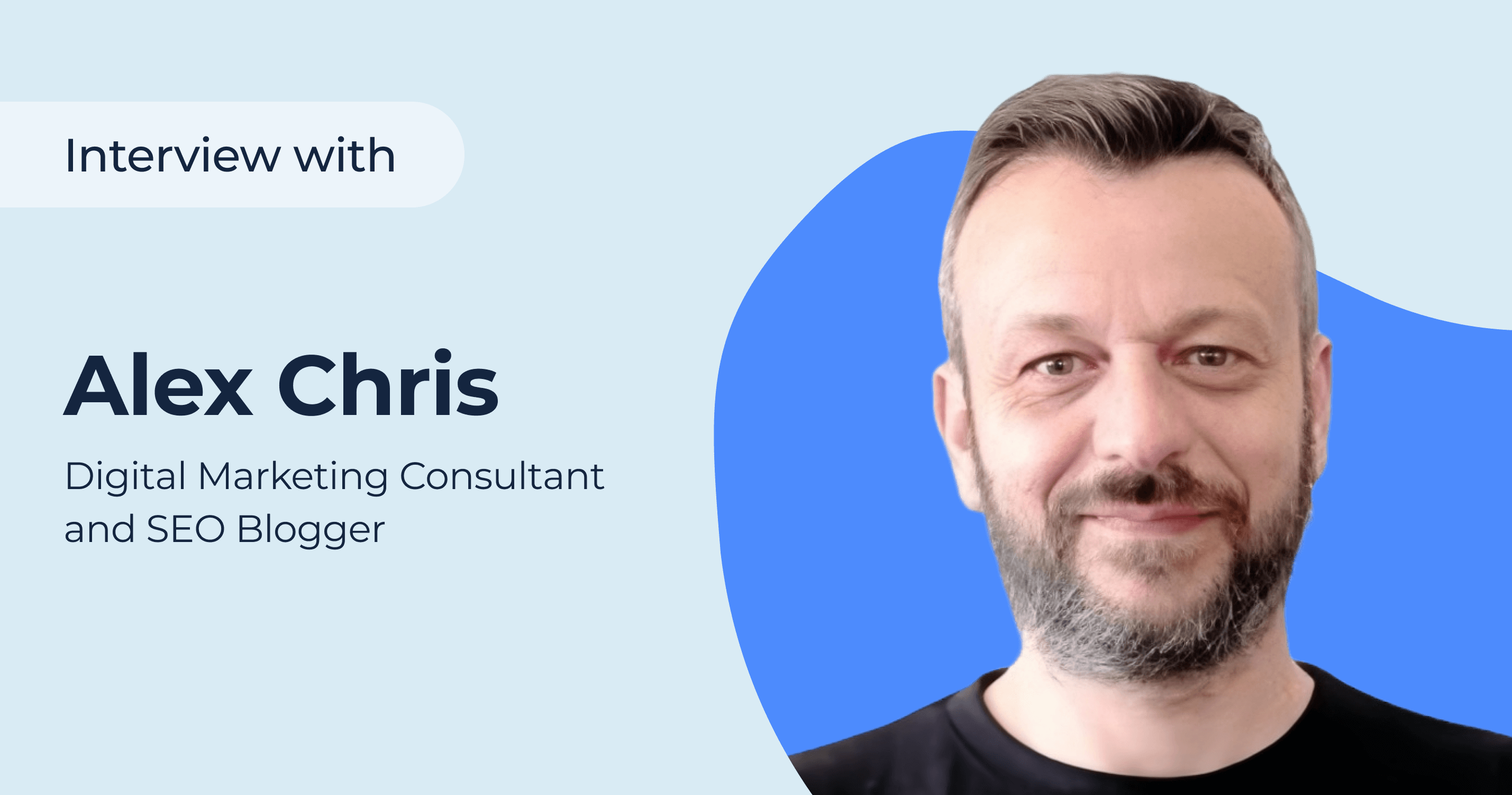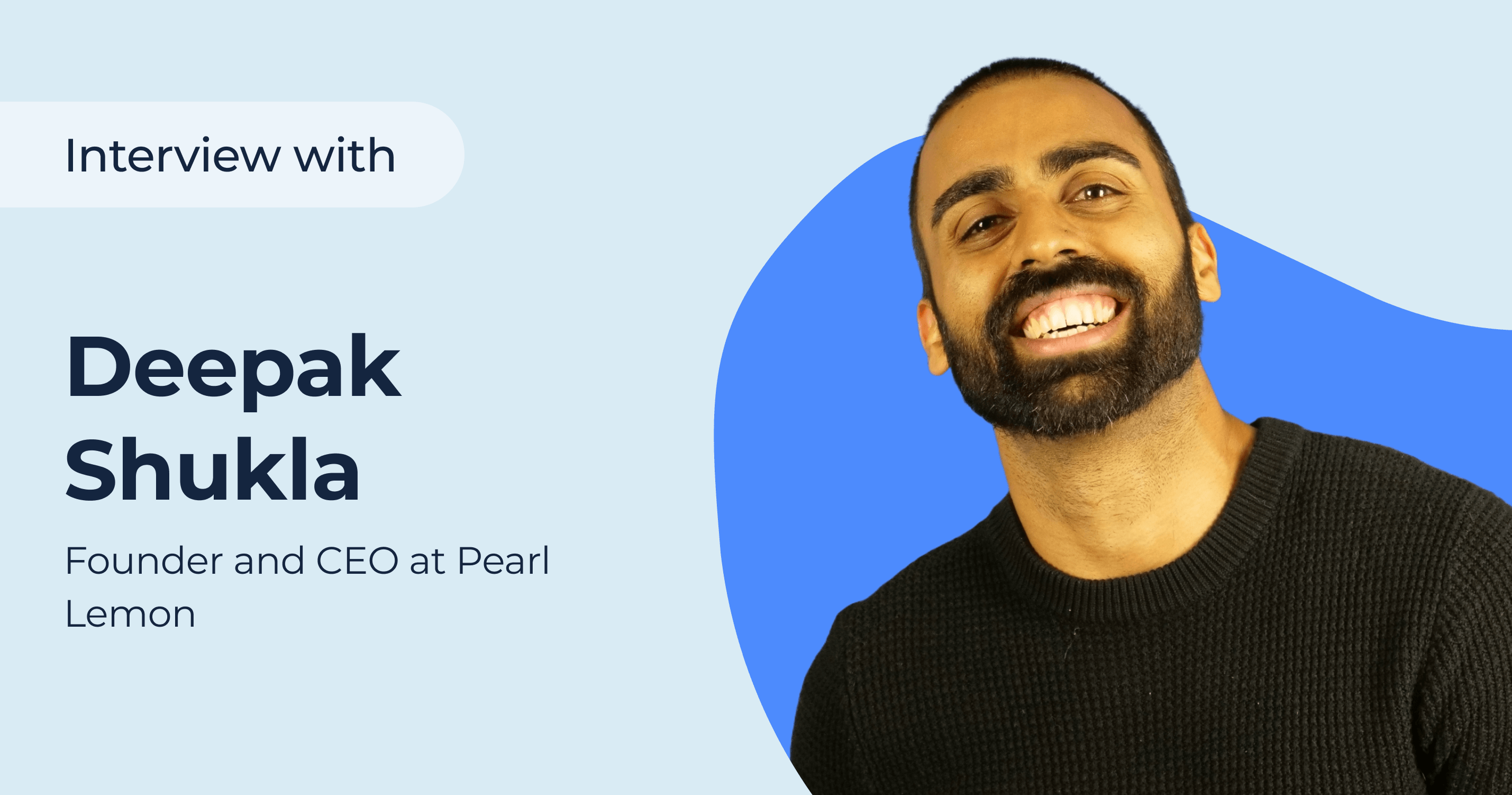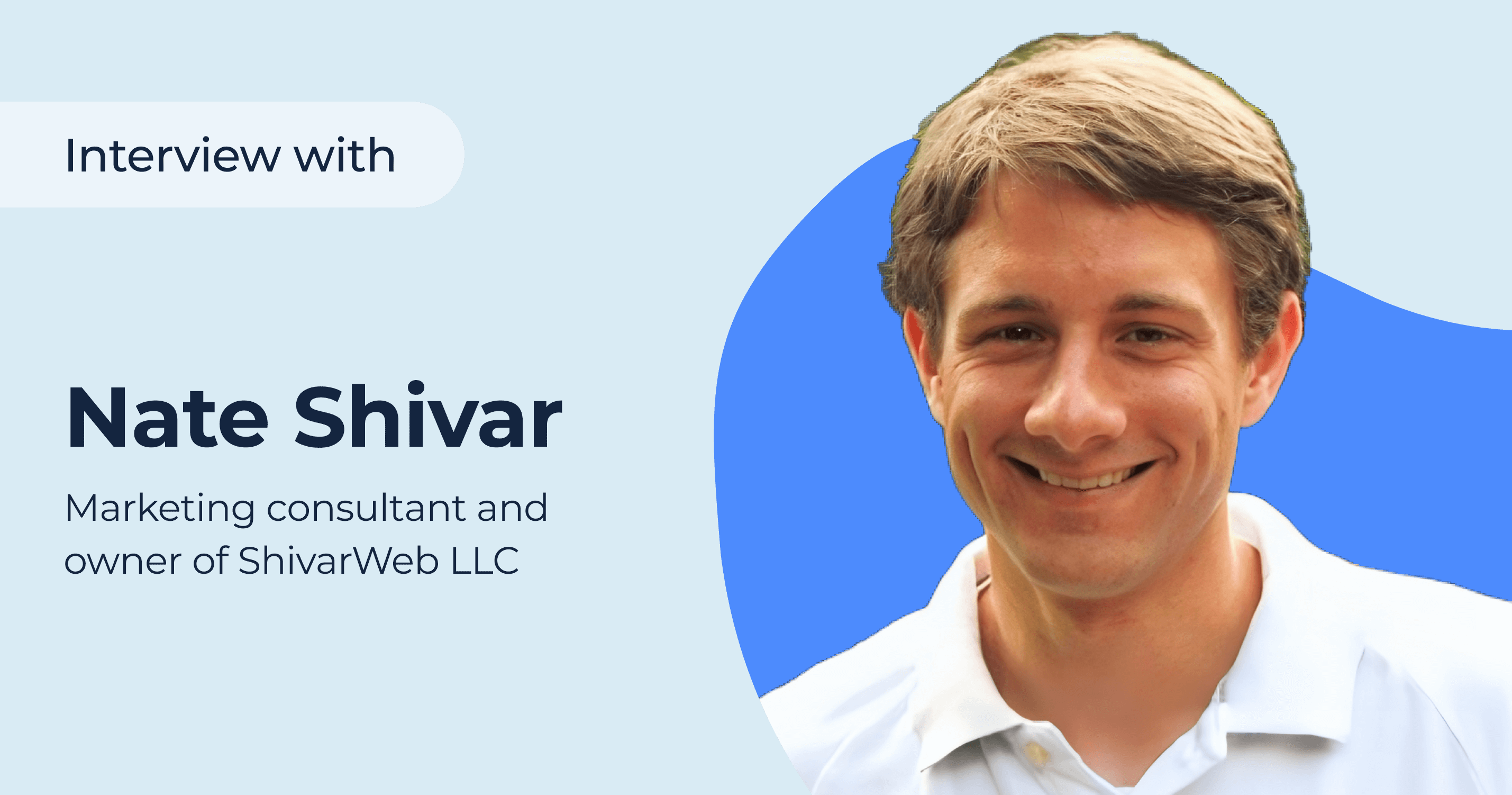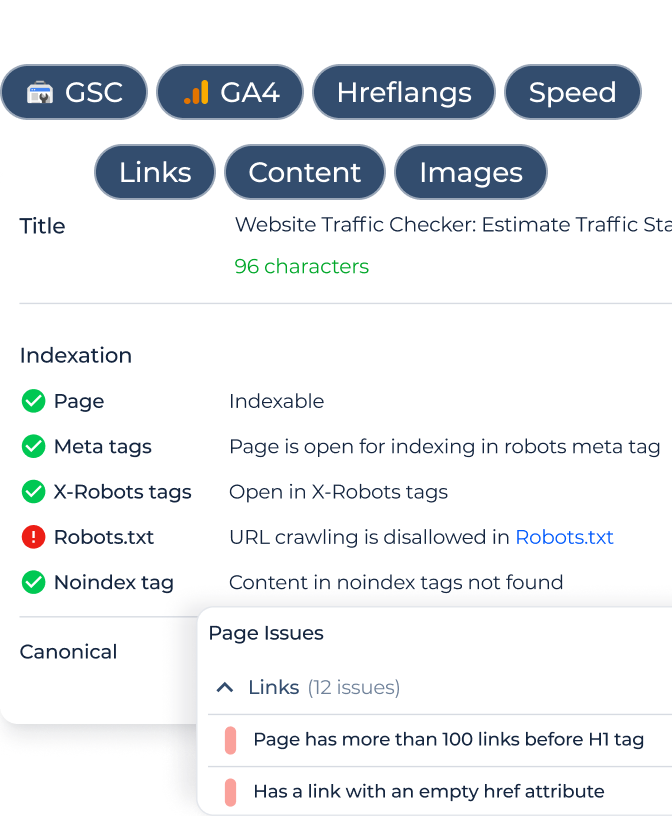James Foote is a seasoned SEO expert, advising on digital strategy for major DTC high-street brands and global B2B sector clients. As a previous Strategy Director, he has worked with the top 4 compliance firms as a consultant to assess digital asset value with private equity houses.
James in his current role as Technical Director now heads up the technical SEO division at Polaris SEO Agency focused on guiding online journeys for ecommerce and B2B nationwide brands.
In a recent interview, James Foote shared his insights on the evolving landscape of technical SEO, addressing key changes and challenges.
1. What has сhanged in technical SEO in recent years?
- how the influence of technical SEO on search success has changed;
- how clients’ vision of technical SEO has changed;
- how the approach to finding and solving problems in technical SEO has changed.
Having been in the SEO world (information retrieval) since 2007, focusing on building, testing and scaling technical web projects I would say the biggest change that I see now is that technical is spoken about a lot more, rather than whispered around the halls of many agencies.
Post 2012, a lot of agencies didn’t invest in technical. The focus was always on content, digital PR and social media. Technical was in many cases too hard to explain to clients, the domain of developers and many agency owners didn’t understand it or the language we spoke. It was all too confusing and for agencies was hard to recruit talented people, and monetize to create a value proposition around.
Technical SEO in recent years has experienced a resurgence, although unfortunately understanding is still low and many are still promoting it at an overly basic level.
Many SEO events have speakers who:
- either dumb it down for a marketing audience or
- create the most complex talks that you would need a degree in computing to understand. There is no in-between.
I like many other SEOs am fully versed in Python, but I was previously a marketing director. I seriously do not see the value in mass-market, broad-targeting SEO events holding talks on the subject.
It appeals to a very core subsect of SEO practitioners and even then these guys are self-taught, therefore do not learn by “listening” they learn by “breaking things”. Marketing teams care about “make me look good in front of my boss, further my career” they are so far removed from coding language. This is not usable information.
Don’t get me wrong, some SEO professionals are flying the “useable” technical flag – but I can guarantee you that more people are talking on social about “is tiktok a search engine” than “JS page rendering” or “named entity topic modelling”.
How search has evolved suits technical if you know how to gain from investing in the process.
There is a lot more awareness now around how your pages should mark up data in a structured order to give higher relevancy signals to search engines and with the development of Google Search Console giving webmasters visibility on how Google crawls their site – if they look, everyone now has a wishlist of things they can fix. The issue is cognitive bloat – too many things and not knowing what to fix first can leave marketers feeling overwhelmed.
Technical focus is 100% the main area you should focus on within the first 90 days of an SEO campaign. It doesn’t matter on size of your site (as a lot of people say), there may be things going on under the hood that you are unaware of existing and these can be holding back your SEO performance.
How a hidden JavaScript issue was ruining SEO rankings
For example, recently we were working with a B2B client who had a small less than 500 pages indexed with a great DA/DR, good brand equity and an established site but they were not ranking within the first 5 pages for any keywords.
The client was confused, having invested in organic search to-date created content/optimised page content and even addressed a lot of technical issues.
The issue was no one tool would have found and was located by myself during a technical consultancy report. It was simple but very damning.
The developer had used a JavaScript loader transition when the page loaded. This cannot be seen by the naked eye or by any tool. The loader was making the site difficult for search engines to cache and therefore didn’t understand the content on the page.
The fix was simple and was completed commercial query ranking positions moved into the top 3 positions (and have stayed there).
That is the power of technical SEO. You don’t know, what you don’t know.
You can live in blissful ignorance, and invest in content, digital PR and other areas of SEO. But if Google cannot parse/read your webpages, it is simply a waste of time or resources.
On small sites these can be great wins, on big sites they are significant game changers. A technical fix on a large ecommerce site could literally be a win on £1m extra revenue per annum.
The issue with technical is still clients don’t understand the impact. They would rather invest in traditional marketing campaigns around content/PR than in technical. This is partly due to education but also due to developer cost/timeframes.
One of the biggest challenges with technical is getting changes integrated.
Even with developers engaged and bought in – timeframes and resource within their schedules is usually limited especially with larger brands. We work closely with marketing teams, IT Directors and CTOs to get their support first.
Then we reach out to developer partners before even submitting any technical requests to get their buy-in and understand their processes. The way we operate is to build our technical requests into a prioritisation matrix, then a RACI in collaboration with all parties to ensure a voice and fair process. This is how we get the best out of developer partners.
The approach to finding technical issues hasn’t changed but there are levels. A lot of agencies still complete an audit, check GSC or use a suite of SEO tools to output the basic issues into a generic housekeeping list.
However, the more advanced agencies will build a technical report, using proprietary tools and manual checks made by experienced practitioners at a template level.
Within any SEO campaign, there are automated checks (i.e. alert systems when something has changed) and weekly health checks on enterprise-level accounts that involve checking log files vs previous crawl/new crawl for patterns and obviously spot-checking sites (manual but effective). Usually, any new technical issue is raised during a strategy piece of work – discovery into scope within an agency environment post a 90-day sprint.
2. We see that Google is increasingly rewarding e-commerce sites, authoritative brands, and UGS sites in search results.
How do you adapt your client’s SEO strategies to accommodate these changes?
Brands have a high value to Google. By their nature, they have a high authority, target audience salience and match E-EAT/YMYL algorithm criteria.
Ecommerce sites are ranking better in search, but this is a natural progression. Google is building an ecommerce platform within search – with facets/sorts and filters they want their users to use the search engine to choose what brand to buy from.
Ecommerce sites are ranking better for informational-based content – but this should have always been the case. A site that sells furniture has a lot more credibility and trust factors than a publisher. Customers look to retailers to inspire and educate – this change is more of a realignment.
3. How do you adapt your strategies to keep up?
Become an authority. Brand build, increase brand awareness, and become a searchable entity. Have a purpose and become a topic-level expert – define a content strategy based on coverage, speak at events, and be featured by sites as an expert on the topic. Be a brand, don’t be a website.
For ecommerce sites it’s more simple – invest in informational content (this will also help with SGE), create more of a social following and for content discovery based on your target audience use TikTok/YouTube. Don’t just rely on Google. Think visual outside of “the ten blue links”.
Lastly, invest in your Schema (Google has given clear guidance on what ones to use) and your merchant centre feed for organic shopping/product feeds which for some terms take up around 70% of Google Page 1 visibility.
4. How has the behavior and expectations of your customers changed due to the latest Google updates in 2023 and 2024? How many of them are panicking or cutting budgets?
No, many of our clients understand marketing is a long-term game and organic search requires consistency over a longer period. The main focus has been on listening more to helpful content suggestions around E-EAT/YMYL.
A lot still talk about AI for content creation but having seen the impact from the recent unhelpful algorithm update a lot of clients are careful about investing further.
5. How do your clients and you at the agency feel about AI content generation? Do you implement it in your workflow?
AI content generation has its place but it should never be used as a first stop and always only as a secondary measure to validate the approach. Our clients see the value but most only use it once or twice and are not blown away from the output.
The value of AI is prompting and iterating prompts multiple times and then further changing the output. We don’t use it for content generation for our clients at our agency. There are members of the technical team who use it for Python scripting, regex formulas and topic clustering.
We are working on a proprietary tech application using ML/Python based on website migrations (as we currently do around on average 4-6 a month) – details on this are closely guarded at present but we envision the tool to be game-changing to the migration market as the team building it have over 10,000 hours of migration experience to hone the algorithm.
6. If you were starting your SEO agency from scratch now, what strategy would you follow to make it successful?
Software development to create proprietary SEO apps that can be easily integrated into a client business to speed up SEO integration. At the same time making these apps express technical easier to understand so clients can build a business case quicker for technical resources to get changes made.
Lack of integration is the biggest catalyst for SEO campaign failure.
7. Share your vision of what the SEO will be like in 3-5 years?
Probably exactly the same. Search is evolving but people evolve behaviors at a slower pace. Voice search has been around for years, hardly anyone uses it. Outside of mobile.
Marketing is all about context. Yes, people will use TikTok to discover new recipes, but it’s what they have been doing on YouTube for years. TikTok needs to beat YouTube before it can compete as a search engine with Google.
I do think the search experience will become more fragmented, which will make SEO agencies focus on creating content throughout multiple touch points not just “own site optimisation”.
SGE will create a fuller experience for users, but it’s unlikely Google will use SGE on all queries (plus there is no defined date on if SGE will be released in UK/EU – aware it is currently being tested) due to privacy laws.
Companies will want to “rank in AI overviews” – like they wanted to back in the day with featured snippets. Content coverage, passage indexing, brand equity/trust and lower computational resources plus dependency hops will be key for these new features.
Technical will still exist, websites/apps will still be built and new technologies will need to be understood by Google. Who will remain the king of search. Those who wish to benefit from Google will need to adhere to their rules.
Finally, Google will become more experienced-based (currently training a new algorithm on Reddit data) so websites will need to have more first-party experience, helpful for people rather than being overly salesy.
8. What advice do you give to SEO specialists, no matter in agencies or in-house, to remain in demand and successful in SEO?
Read. Make it your passion to learn, don’t rest on your laurels thinking you know everything – search changes constantly. There are some amazing people out there in SEO – who don’t just show a Google Search Console graph out of context. They engineer, think, and go deeper down the rabbit hole.
Become an engineer, and play around with Python scripts in Google Colab (there are loads of SEO scripts available to discover from search to play around with).
In-house SEOs build passion projects outside of your sector. Agency SEOs increase reps, reduce reliance on saying what happened move closer to why and build soft skills. Become less about keywords and more about commercial value. Learn to focus on a strategic direction around business goals rather than tactics.
Once you digest, reverse engineer and test. Don’t believe everything you read on LinkedIn, Google lies (confirmed), SEO experts lie (build lists, to sell a course to you), and agencies lie.
Many people in SEO have an agenda, invest in yourself and trust your eyes. Be curious, open doors and keep moving forward (to paraphrase Walt Disney). This is how you stay fresh in the world of search.









